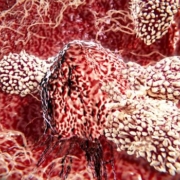Burlingame, California-based Humanigen reported positive data from the company’s Phase Ib ZUMA-19 trial of lenzilumab in patients treated with CAR-T in diffuse large B-cell lymphoma (DLBCL). Lenzilumab is being investigated for the drug compound’s ability to tamp down the hyper-immune response known as a cytokine storm.
Less than a month after submitting an Investigational New Drug (IND) application, Anixa Biosciences ran into a snag with the U.S. Food and Drug Administration as the government agency asked for more information before approving a clinical study on the company’s Chimeric Antigen Receptor-T cell therapy (CAR-T).
Paris-based Sanofi bought Cambridge, Massachusetts-based Tidal Therapeutics in a deal totaling $470 million.
Chimeric antigen receptor (CAR-T) therapy is one of the biggest cancer therapy breakthroughs of our time, but as with any precise science, there is still some fine-tuning to be done to overcome safety risks, limited payload capacity and the prohibitive cost of manufacturing.
Gilead Company Kite submitted a supplemental Biologics License Application (sBLA) to the U.S. Food and Drug Administration for Tecartus (brexucabtagene autoleucel) for the treatment of adult patients with relapsed or refractory B-cell precursor acute lymphoblastic leukemia.
U.S. FDA Approves Abecma for Relapsed or Refractory Multiple Myeloma
Approvals, B-cell maturation antigen (BCMA), Bristol Myers Squibb, CAR-T Therapy, Clinical Trials, Cytokine Release Syndrome (CRS), FDA/Regulatory, First-In-Class, Human Anti-CD38 Monoclonal Antibody, Immunomodulatory Agents, Proteasome Inhibitors, R&D, Relapse/Refractory Multiple Myeloma, TherapeuticsThe U.S. Food and Drug Administration approved Bristol Myers Squibb’s and bluebird bio’s Abecma (idecabtagene vicleucel) as the first anti-BCMA CAR T cell therapy for relapsed or refractory multiple myeloma.
The U.S. Food and Drug Administration granted accelerated approval to Gilead Company Kite’s Yescarta (axicabtagene ciloleucel) for the treatment of adult patients with relapsed or refractory follicular lymphoma after two or more lines of systemic therapy.
CRISPR Pioneer Caribou Nets $115 Million to Advance Promising Pipeline
Business, CAR-T Therapy, Chimeric Antigen Receptor Natural Killer T Cells (CAR-NKT cells), Clinical Trials, CRISPR, Financing, Gene Editing, Immune Cells, Product Pipeline, R&D, Relapsed/refractory B cell non-Hodgkin lymphoma, Series CCaribou Biosciences secured $115 million in an oversubscribed Series C financing round that will be used to advance the company’s pipeline of wholly owned allogeneic immune cell therapies for oncology and its next-generation CRISPR technology platform.
NKarta Therapeutics is using engineered chimeric antigen receptor natural killer T cells (CAR-NKT cells) for allogeneic therapy, showing substantial benefits both in vitro and in vivo, according to the company’s CSO James Trager at the virtual CAR-TCR Summit – Europe.
Shares of Cellectis Therapeutics were up in trading after the gene-editing pioneer company forged a deal with Cambridge, Mass.-based Cytovia Therapeutics to develop immunotherapies based on gene-edited allogeneic CAR T-cells.









